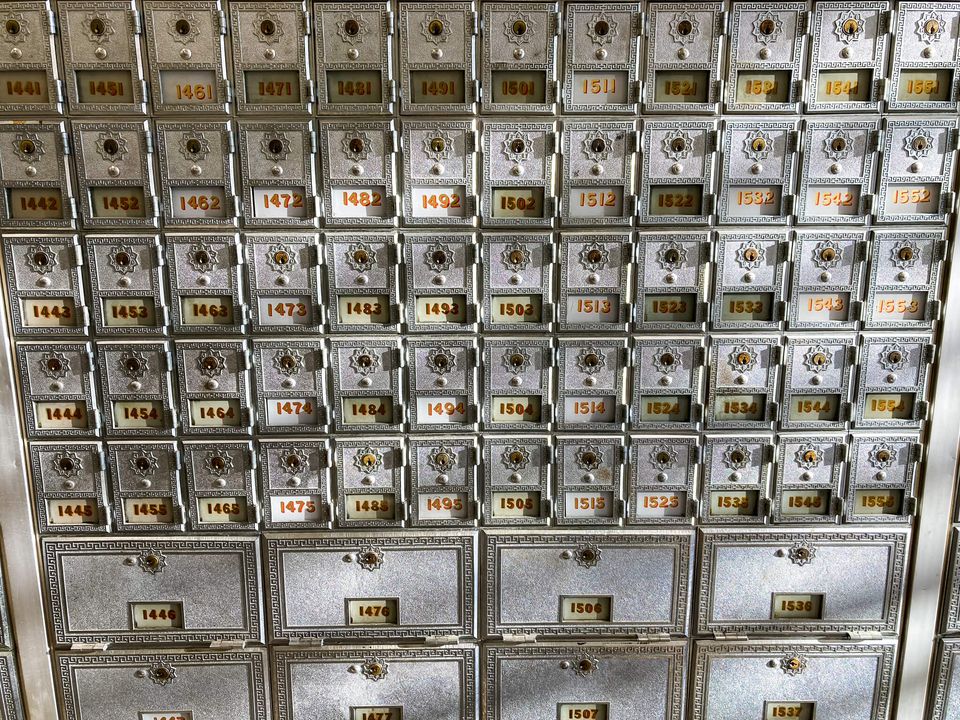What Giving up a Little Bit of Freedom Could Get Us (Newsletter 054)

Greetings fellow travelers.
In this week's Moral Letters, we address the related questions of how we should deal with things we cannot change, and what kind of person can keep a sufficiently open mind to see when something that appears inevitable may actually still be changed. Both Moral Letters will help us with this week's topic, which is a thought experiment about what Americans might gain by being less individualistic.
In Moral Letter 107 On Accepting The Inevitable, we discuss what our response to unlucky circumstances says about us. Many things make our situation worse, but there are reliable ways to turn misfortune to our favor.

In Moral Letter 108 On A Learning Mind, we discuss what makes for a successful student. What type of person can learn new things, and in what environments? They must question, they must doubt, and ultimately, they must listen to alternative viewpoints.

People who think they know everything cannot learn anything new. It is in the spirit of the learning mind that we turn to our main topic. Here we explore what would happen if we trusted our government enough to register with them where we live.
When my wife and I first moved to Frankfurt, we were amazed that everyone had to register with the local authorities. Whether citizen or foreigner, renter or owner, student or employee. Each person had to make their way to the residents' registration office (Einwohnermeldeamt) and confirm their particulars.
"This would never fly in America," we laughed to ourselves. Americans have a fierce streak of independence, and we value personal freedom too much to be tracked like sheep in this way. Or as I used to sum up the American attitude: "You can't tell me what to do."
In addition to registering yourself when you move to a new community, you must de-register yourself from your old community. But many Americans are mobile, moving frequently from city and state. Can you imagine the bureaucracy required to keep track of such a citizenry? And considering the vast amounts of data involved, does anyone doubt that epic leaks and loss of personal data would be commonplace?
It wasn't until we moved to Switzerland and lived there a spell that the upside of knowing where people are became clearer. I'll describe some of the upsides to you, after which you can decide for yourself whether the tradeoff is more attractive than you at first thought.
Online shopping is great when you don't fear fraud
Here's a simple, but profound difference between the U.S. and Switzerland. When you order something online in Switzerland, you don't need to pay in advance. Because you have a registered address, there is much less risk of fraud. Vendors thus happily send your items with an invoice that you settle later.
"What's the big deal?" you may be thinking. "The pay-up-front model in the U.S. doesn't seem so bad." But we suffer in the U.S. from rampant identity theft and credit card fraud. Because no one has a verified address, anyone with your credit card details can order anything to be sent anywhere. That fraud raises costs for everyone.
Infrastructure is easy when you see what your money gets you
Now let's consider how a country's residents get basic services, like infrastructure, schooling, and insurance. Swiss residents think of their location along three levels: the Federal level (that is, the country of Switzerland itself), the Cantonal level (roughly equivalent to a U.S. State), and the local level or the town you live in.
You will interact with authorities at all three levels depending on the topic. For example, the town and Canton you live in drive the bulk of your tax obligation. This is because the town and Canton are responsible for basic infrastructure and schooling, so your taxes go directly to the relevant authorities.
Even after 25 years, I am still impressed upon seeing Swiss vote to raise their taxes to fund major investments in their communities: a new road or train station or upgrading a local school. When you and your family directly benefit from an investment, you are much more likely to take the long view and contribute towards local infrastructure via higher taxes.
When you see exactly where your tax money goes, you are also much more alert to waste. While you are happy to invest where it makes sense, you are equally ruthless at cutting out fat. This explains why Switzerland is world-class when it comes to efficient government spending.
Insurance actually works when everyone pays
Now let's talk about health insurance, car insurance, and house insurance. They're all mandatory in Switzerland, and because the authorities know where you are, there is no hiding. This, it turns out, is wonderful for the efficiency and fairness of each insurance system.
The price of basic health insurance is set by the federal government. If you want more than the basic insurance, you can pay for it. But the basic costs of the system are shared by all. As a result, while the Swiss federal government spends the least of all OECD countries on healthcare costs (0.4%), the U.S. spends by far the most (almost 30%). Note that healthcare is expensive in both countries. The difference is that the costs are much more evenly shared in Switzerland, while in the U.S. the government redistributes funds from taxpayers to nontaxpayers such that individuals bear quite disparate amounts of the cost.
Spreading the costs of car insurance across all drivers in Switzerland similarly makes it affordable to everyone. You need no "uninsured or underinsured motorist" coverage because there are no uninsured motorists. You simply cannot register a car without proof of insurance. And if you let your insurance lapse, your insurance company notifies the Department of Motor Vehicles immediately. You thus cannot drive your car without it being insured. All made possible because the authorities know where you are.
Now consider homeowners' insurance. Insurance for basic structural damage is mandatory. Each Canton has 100% transparency over its housing stock, including commercial buildings, and sets rates for all owners accordingly. Interestingly, the basic insurance covers 80% of the cost of rebuilding, giving owners an incentive to behave responsibly with their property. As with health insurance, if you want more coverage than the basic level, you can buy more voluntarily. But the cost of unexpected disasters is borne by all.
Citizens can trust in their vote
Here's an enormous benefit to a democratic society in knowing where your citizens are: you can ensure secure voting. The Swiss vote a lot, and they have absolute confidence in the security of their system. They vote on Federal, Cantonal, and local topics several times a year. In each case, the authorities send each citizen, by name, detailed voting materials for the matters up for vote. Although you can vote in person, vote by mail is common because it is easy and reliable.
Moreover, did you know Swiss citizens can vote no matter in what country they live? Switzerland has one of the highest percentages of citizens living abroad, at almost 11%. Nothing keeps a person tied to their home country like voting. Swiss abroad can vote because the Swiss authorities know where they are: you are asked to register with the Swiss representatives in the country you've moved to. And the strength of the Swiss system is demonstrated by just how many Swiss do register. Why wouldn't they?
In contrast, I can tell you that voting as a U.S. citizen abroad is a labyrinthine, painful process. Depending on what State you formerly lived in, you can only vote in Federal elections, and then only by following Kafkaesque procedures that differ from State to State. Most U.S. citizens I know who have made long-term homes abroad are more likely to feel alienated from the U.S. than a part of it.
Paying taxes doesn't have to be taxing
Often the only thing keeping U.S. expats connected (some would say bound) to the U.S. is taxes. Almost uniquely, the U.S. levies taxes on the basis of citizenship in addition to residence. Thus, if you are American, you must deal with U.S. taxes no matter where in the world you live. Tax season does not leave anyone feeling happy. Indeed, many expats feel frustrated and ill-treated. They face confusing, inefficient, and redundant reporting, and draconian penalties for even inadvertent mistakes. Small wonder that the U.S. has one of the highest rates of citizens seeking to renounce their citizenship.
Oh, by the way, your Swiss taxes? Most Swiss prepare their own returns, which takes them a few hours. The authorities have last year's data on file and send you a personal link to an on-line form pre-populated with your relevant data. Heavenly.
Anyway, do you really think you are free?
Some of you are thinking now, "Well, yes. All this sounds great. But there's just no way Americans would ever submit to giving up their data to authorities like the Europeans." To which I respond, "Oh really?" From birth, we are tracked by our Social Security Number, which serves as an identifier for countless government interactions, including paying our taxes.
Notwithstanding our SSNs, we tell ourselves we have individual freedom because we don't register with any central authority. But consider how many times we unthinkingly give up personal data in exchange for some service:
- Do you have a credit card? Trust me, your credit card company knows all about you, including every place you've lived for the past 20 years.
- Have you ever bought something online? Amazon knows quite a bit about you beyond your preferred shipping address.
- Did you finance your car? Do you have a kid in school? Did you ever work for an employer that paid taxes? Do you have health insurance? Do you have a bank account?
Ironically, the lack of a central registry means our data is strewn across countless, redundant systems. Rather than being protected by a strong central system, any one of hundreds of sites and overworked IT administrators may be the vector for a hack that reveals much more personal data about you than you may realize. You only need search for personal information about someone to see just how much is already out there to find.
I leave you with this thought. Even where we genuinely have freedom, it comes with real costs. Is it worth giving up a small bit of freedom to buy things like less online fraud, broad-based and fair insurance, and trust in our elections?
Be well.
I'd love to hear from you. Just hit reply to tell me what's on your mind. If you received this mail from a friend and would like to subscribe to my free weekly newsletter, click here.







Member discussion